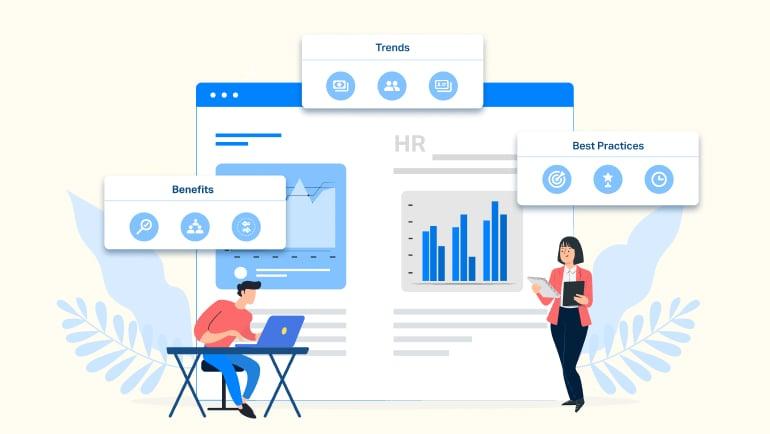Top Strategies for HR Managers in Education Technology: Driving Talent and Innovation
Education technology is revolutionizing the way universities, colleges, and schools operate, making innovative HR strategies crucial for attracting and retaining top talent. Whether you’re a job seeker or an HR professional, knowing the best practices within edtech hiring is essential for thriving in this rapidly evolving field. This thorough guide explores job-winning strategies that human resources managers use to foster talent and drive innovation in education technology settings.
Why Education Technology needs Strategic HR Management
HR managers play a pivotal role in shaping the education technology workforce. With the rapid adoption of digital tools and remote learning systems, schools and higher education institutions require professionals who can adapt and innovate. Effective HR strategies ensure that the right candidates are recruited, trained, and inspired to make a difference in the edtech sector.
- Rapid technological changes: HR must navigate new digital platforms and teaching tools.
- Demand for specialized skills: Data analytics, AI, coding, and instructional design are key capabilities.
- Continuous learning culture: Lifelong learning is crucial for both educators and administrators in edtech.
Essential strategies for HR Managers in Education Technology
HR practitioners seeking to fill roles in education technology should consider the following approaches wich have proven effective in attracting,developing,and retaining talented professionals:
1. Prioritize Skill-Based Hiring
- Focus on core competencies: Recruit candidates with expertise in software growth, learning management systems, and digital pedagogy.
- Assess technical acumen: Use practical tests or project-based interviews to evaluate digital skills.
- Value soft skills: Collaboration and communication are essential for cross-functional teamwork in edtech.
2. Build an Innovative Employer Brand
- Showcase success stories: Highlight achievements and technological milestones.
- Promote professional growth: offer insights into training, mentorship, and opportunities for advancement.
- Encourage thought leadership: Publish research, host webinars, and engage in conferences.
3. Foster Diversity and Inclusion
- Adopt inclusive hiring practices: Leverage blind recruitment and diverse interview panels.
- Establish supportive cultures: Implement employee resource groups and anti-bias training.
- Expand outreach: Partner with organizations and universities to attract diverse applicants.
4. implement Smart Onboarding Programs
- Offer digital onboarding: create interactive guides and online resources for new hires.
- Assign mentors: Pair recruits with experienced staff members for guidance.
- Schedule regular check-ins: Ensure continuous feedback and support throughout the probation period.
5. Encourage Continuous Professional Development
- Host training workshops: Keep employees up-to-date with the latest technologies and best practices.
- Support certifications: Facilitate access to professional courses and credentials in edtech.
- Fund conference attendance: Allow team members to network and learn from industry leaders.
6. Leverage Data-Driven Decision Making
- track recruitment metrics: Analyse time-to-hire, retention rates, and employee engagement.
- Utilize HR analytics tools: Optimize talent pipelines and predict future hiring needs.
- Monitor employee satisfaction: Conduct pulse surveys and address feedback proactively.
Key Benefits of Strategic HR Practices in EdTech
When HR managers embrace forward-thinking strategies, educational institutions gain a competitive edge. Here are some top benefits:
- Improved talent alignment: Matching skillsets to job requirements boosts productivity and innovation.
- Greater retention rates: Supportive onboarding and development programs reduce turnover.
- Stronger organizational culture: A diverse workforce fosters creativity and enhances problem-solving.
- Positive employer reputation: A robust employer brand attracts top education technology professionals.
Practical Tips for Job Seekers in Education Technology
If you’re aiming for an education technology position at a university, college, or school, tailor your approach to meet the expectations of HR managers.
- Highlight relevant skills: List your proficiency in edtech platforms, instructional design, or digital content creation.
- Demonstrate adaptability: Share examples of how you’ve thrived in fast-changing environments or piloted innovative tech solutions.
- showcase continuous learning: Mention workshops, certifications, or courses you’ve completed in the field.
- Communicate your values: Illustrate your passion for education, diversity, and technology integration.
- Network purposefully: Engage in professional groups, attend local events, and connect with HR professionals on social platforms.
How HR Managers Can Foster Innovation in Education Technology
Success in education technology depends on cultivating an innovative culture. Here’s how HR leaders drive new ideas and practices in schools, colleges, and universities:
Promote Cross-Functional collaboration
- Encourage teams from IT, curriculum, and management to work together on major projects.
- Implement agile working methods to foster versatility and rapid problem-solving.
Reward Creative Thinking and Experimentation
- Set up innovation awards or recognitions for breakthrough ideas.
- Allow employees to dedicate time to research and pilot new technologies.
Establish Continuous Feedback Loops
- Invite employees to propose improvements to digital tools and instructional processes.
- Use regular feedback sessions to refine strategies and scale what works best.
Overcoming Common Challenges in EdTech HR Management
While education technology offers exciting opportunities,HR managers and job seekers must also navigate common obstacles:
- Talent shortages: Address by broadening candidate pools and partnering with edtech training providers.
- Resource constraints: Optimize HR processes using digital tools and targeted recruitment campaigns.
- Rapid change: Build a workforce open to transformation through robust professional development.
Conclusion: The Future of HR in Education Technology
Education technology jobs are at the forefront of academic transformation, and effective HR strategies are paramount for success. By focusing on skill-based hiring, innovation, diversity, and professional development, HR managers enable universities, colleges, and schools to cultivate top talent and drive ongoing progress. Whether you’re entering the job market or refining your HR approach, embracing these strategies will empower you to thrive in today’s dynamic edtech landscape.
If you’re interested in an education technology career, consider the evolving needs of HR managers and position yourself as a forward-thinking, adaptable candidate. For HR professionals, the possibility to shape the future of learning through smart hiring, training, and collaboration has never been greater. Together, let’s drive talent and innovation in education technology to new heights.

